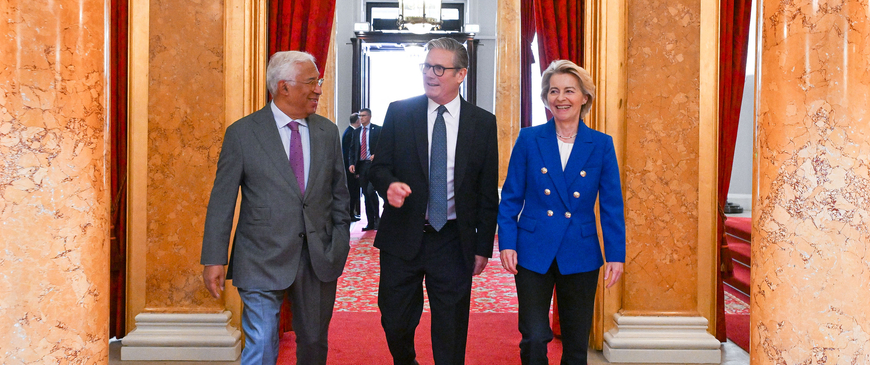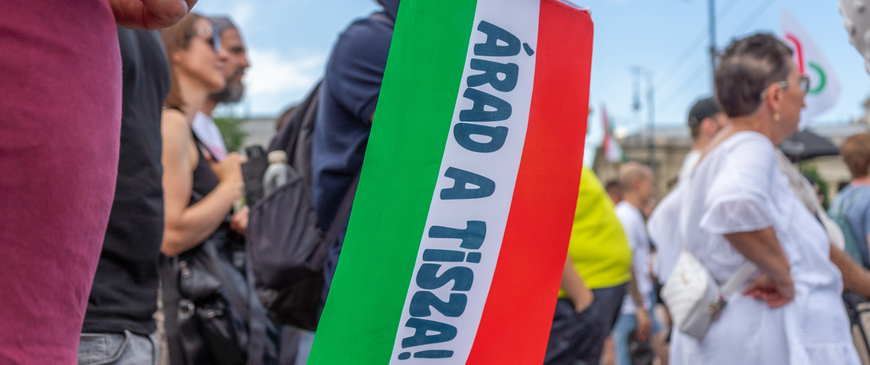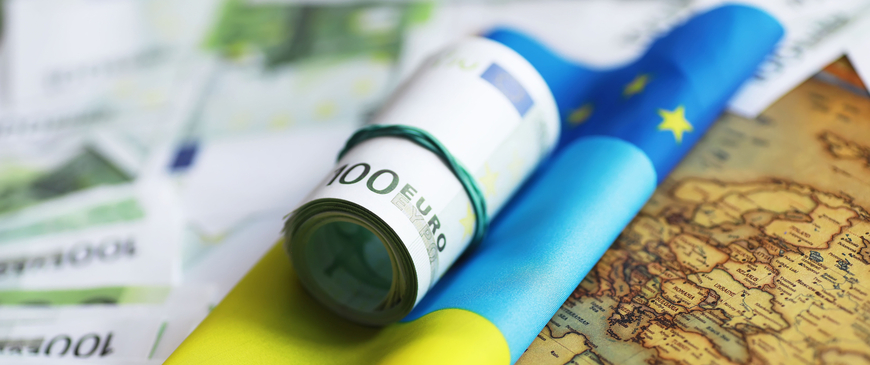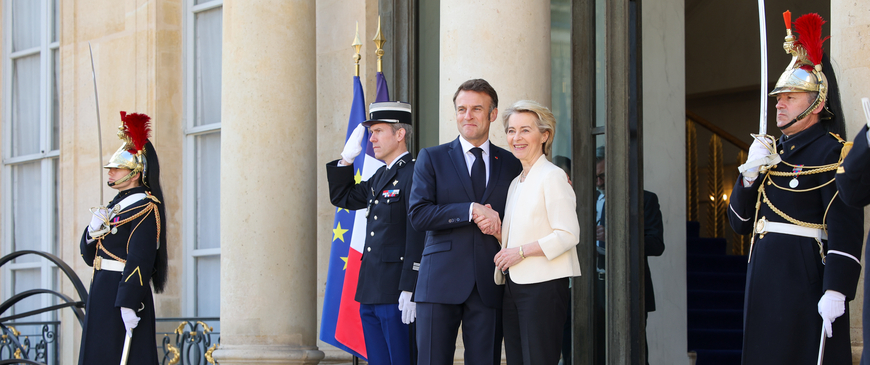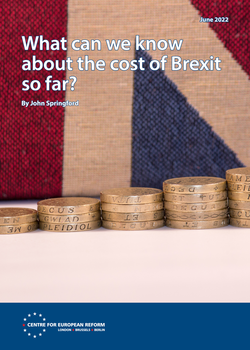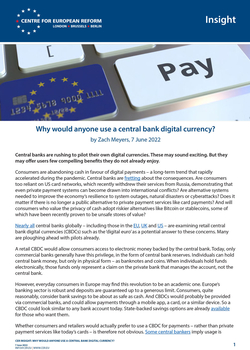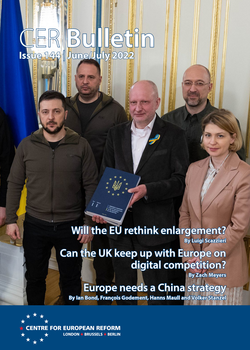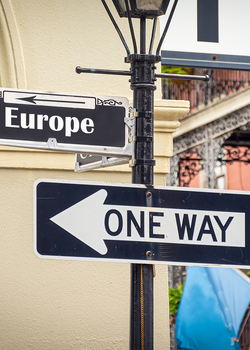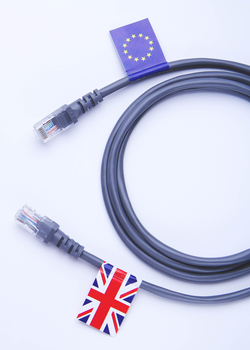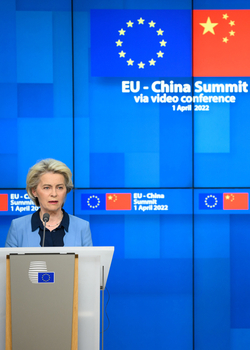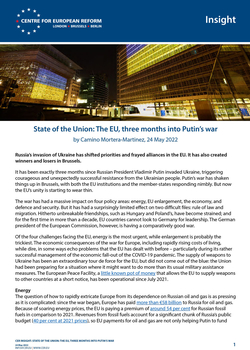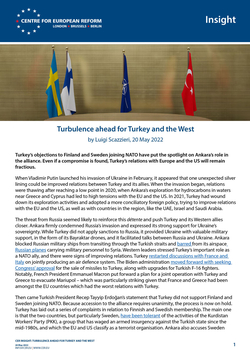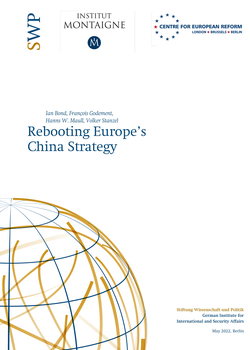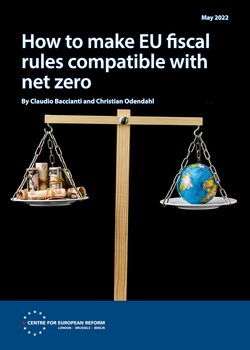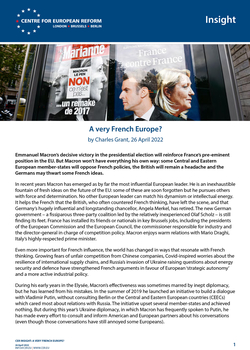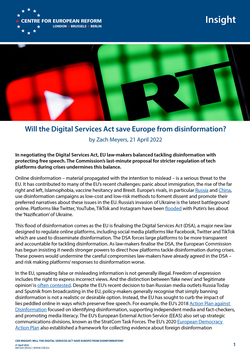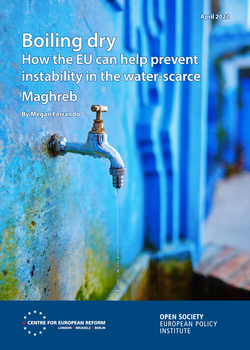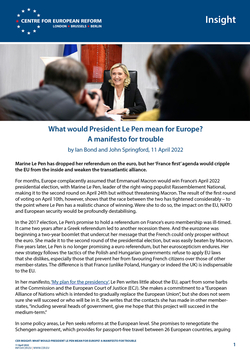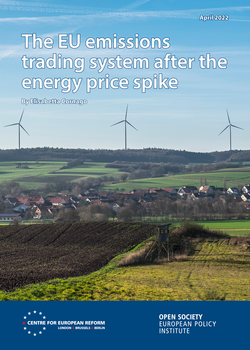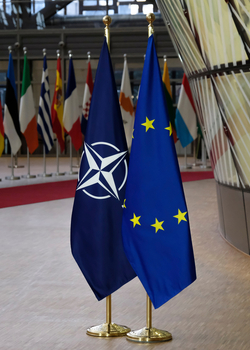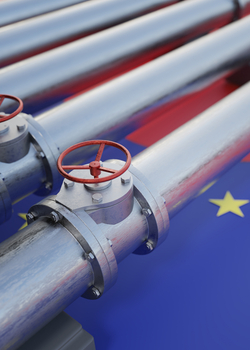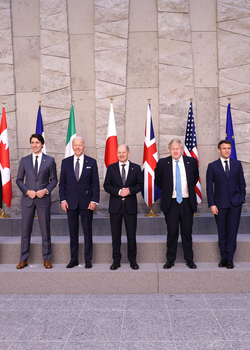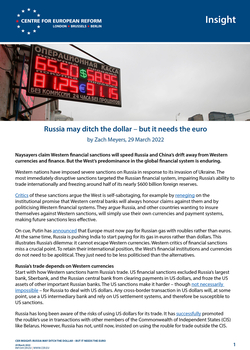Research
What can we know about the cost of Brexit so far?
09 June 2022
The UK's GDP is 5.2 per cent smaller than a modelled ‘doppelgänger’ UK that did not leave the EU; investment is 13.7 per cent lower, and goods trade, 13.6 per cent lower. Most of those costs are down to Brexit.
Why would anyone use a central bank digital currency?
07 June 2022
Central banks are rushing to pilot their own digital currencies. These may sound exciting. But they may offer users few compelling benefits they do not already enjoy.
Bulletin issue 144 - June/July 2022
30 May 2022
- Will the EU rethink enlargement?, Luigi Scazzieri
- Can the UK keep up with Europe on digital competition?, Zach Meyers
- Europe needs a China strategy, Ian Bond, François Godement, Hanns Maull, Volker Stanzel
Will the EU rethink enlargement?
30 May 2022
Ukraine’s EU membership application has revived the debates about enlargement and a multi-tier Europe. Reforming the enlargement process to make it more gradual could be the best place to start.
Can the UK keep up with Europe on digital competition?
30 May 2022
As Brussels finalises world-leading digital competition rules, Prime Minister Boris Johnson has deferred similar reforms for Britain. But if UK authorities are bold, they can still help shape global tech markets.
Europe needs a China strategy
30 May 2022
The attention of Europe’s foreign and defence policy establishment is rightly focused on Russia’s aggression against Ukraine. But it should not lose sight of the immense challenge that China poses.
State of the Union: The EU, three months into Putin's war
24 May 2022
Russia’s invasion of Ukraine has shifted priorities and frayed alliances in the EU. It has also created winners and losers in Brussels.
Turbulence ahead for Turkey and the West
20 May 2022
Turkey's objections to Finland and Sweden joining NATO have put the spotlight on Ankara’s role in the alliance. Even if a compromise is found, Turkey’s relations with Europe and the US will remain fractious.
Rebooting Europe’s China Strategy
11 May 2022
How should Europe respond to the implications of its entanglement with China? The country is an inescapable partner, yet it poses a challenge to the sustainability of our economies, our principles for international action, and ultimately our security.
How to make EU fiscal rules compatible with net zero
09 May 2022
EU governments will have to invest a lot more to meet 2030 emissions targets. Fiscal rules exemptions and more EU funding are needed to ensure Europe reaches its climate goals without political crises.
A very French Europe?
26 April 2022
Emmanuel Macron’s decisive victory in the presidential election will reinforce France’s pre-eminent position in the EU. But Macron won’t have everything his own way: some Central and Eastern European member-states will oppose French policies, the British will remain a headache and the Germans may thwart some French ideas.
Will the Digital Services Act save Europe from disinformation?
21 April 2022
In negotiating the Digital Services Act, EU law-makers balanced tackling disinformation with protecting free speech. The Commission’s last-minute proposal for stricter regulation of tech platforms during crises undermines this balance.
Boiling dry: How the EU can help prevent instability in the water-scarce Maghreb
20 April 2022
Water scarcity is increasingly threatening the security of societies and environment in the Maghreb. The EU should step up its work on water to prevent conflicts in the region.
What would President Le Pen mean for Europe? A manifesto for trouble
11 April 2022
Marine Le Pen has dropped her referendum on the euro, but her ‘France first’ agenda would cripple the EU from the inside and weaken the transatlantic alliance.
The EU emissions trading system after the energy price spike
04 April 2022
EU emissions trading needs an upgrade: the EU should tighten the cap on emissions more rapidly, expand to road transport and buildings, and spend higher revenues on subsidising green investment.
Russia's assault on Ukraine and European security
30 March 2022
Russia’s invasion of Ukraine will require NATO to greatly strengthen deterrence. Europeans will have to shoulder a larger share of the security burden, acting through both NATO and the EU.
Bulletin issue 143 - April/May 2022
30 March 2022
- Can the West stay united on Ukraine – and what will China do?, Charles Grant
- Europe must stop paying for Russia's war, Ian Bond, Zach Meyers, Elisabetta Cornago
- Russia's assault on Ukraine and European security, Luigi Scazzieri
Europe must stop paying for Russia's war
30 March 2022
Putin wants Europe to pay for gas in roubles, forcing it to deal with Russia’s central bank. Europe should respond by ending Russian hydrocarbon imports sooner than planned.
Can the West stay united on Ukraine – and what will China do?
30 March 2022
The longer the war in Ukraine continues, the greater the risk that Western unity will fracture. Meanwhile the choices that China makes will determine the future shape of geopolitics.
Russia may ditch the dollar – but it needs the euro
29 March 2022
Naysayers claim Western financial sanctions will speed Russia and China’s drift away from Western currencies and finance. But the West’s predominance in the global financial system is enduring.

